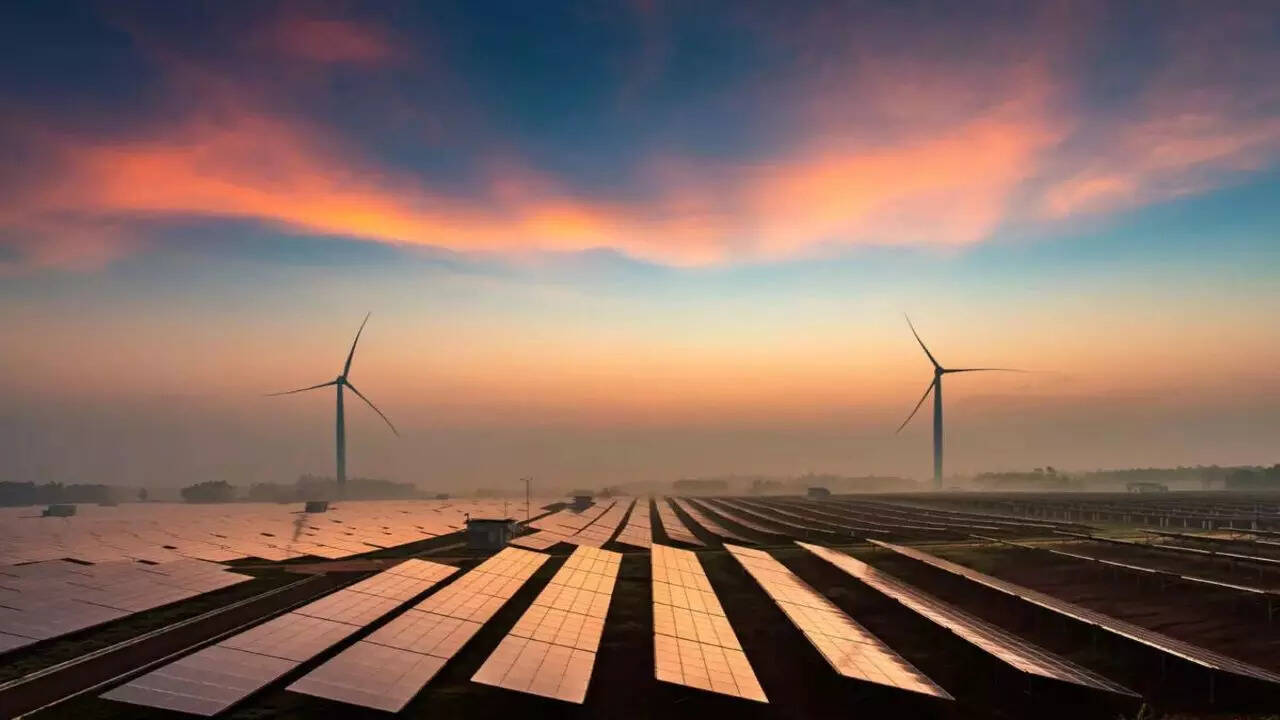
New Delhi: ETEnergyworld successfully concluded its mega initiative, the Solar Power Congress 2023, on Friday with the leaders of the global and the domestic energy sector mapping the growth path for the larger renewable energy industry.
The annual event is a major platform for the energy sector professionals – including both policy makers and CEOs – to discuss and debate upon some of the most crucial aspects of the solar industry. This year’s version was executed by ETEnergyworld in partnership with Sunsure, Climate Trends, Hero Future Energies, Jinko Solar, Vibrant Energy, Longi, Sterling and Wilson, O2 Power, Jakson Green, Radiance Renewables, Trina Solar, Gautam Solar, and NSEFI.
Lok Sabha MP Jagdambika Pal, who is also the Chairperson for the Parliamentary Standing Committee on Energy, graced the occasion as Guest of Honour and said Ultra Mega Solar parks of 40 GW capacity will be set up by March 2024, and Prime Minister Narendra Modi has set a clear roadmap for renewable energy adoption.
Speaking at the inaugural session of the event, Nina Fenton, South Asia Head of European Investment Bank, said the EU-owned bank wants India to play a more important role in the global supply chain. She said EIB is keen to work with the Indian private sector for undertaking corporate finance as it is committed to finance at least USD 1 billion for India’s Green Hydrogen Mission. Fenton said India has played a key role globally for solar power generation.
Suman Sharma, MD, Solar Energy Corporation of India (SECI) delivered the keynote address at the event and said the company has established itself as the biggest renewable energy trader in the country and it will soon launch battery storage and green hydrogen aggregation.
Vibha Dhawan, Director General, The Energy and Resources Institute said that it is important for India to become a hub for solar energy manufacturing. “Rural India can only grow if there is abundant energy. Renewable energy powered cold chambers are needed in rural areas for storing perishable items,” she said.
The partner address at the event was delivered by Shashank Sharma, Founder, Chairman & CEO, Sunsure Energy, who said that energy access to people is an important aspect of development and building digital infrastructure, and financial inclusion are important aspects of a country’s development.
Speaking at the first panel discussion on “Scaling up Solar Energy – Leveraging Policy, Capital Transition, and Business Innovation for AChieving 2030 targets”, Ajay Mathur, Director General of the International Solar Alliance said India is among the best in operating large solar farms and the need of the hour is to reduce the risks associated with them.
On the issue of pooling wind, solar energy, Sushanta K Chatterjee, Chief (Regulatory Affairs), Central Electricity Regulatory Commission said it is a positive step. “Transmission cost is 4-5 times higher if capacity utilisation is 19-20 per cent,” Chatterjee said.
Participating in the discussion, SunSure’s Shashank Sharma said rooftop solar remains an important segment of renewable energy generation but standardization of policy framework is needed. According to Srinivasan Viswanathan, CEO & MD, Vibrant Energy, who was also a part of the discussion, India has a strong transmission network but yet to tap the huge opportunity it presents, and the government is serious about the electricity sector being market based.
Srivatsan Iyer, Global CEO, Hero Future Energies said recent developments like the launch of battery storage tenders in India is a very positive development and his company is very bullish on the renewable energy sector given the large size of the market.
The event hosted an exclusive panel discussion on “Steps to Catapult India into Leadership Position in Solar Manufacturing”. Manish Narula, Executive VP, South Asia, Jinko Solar, who was among the participants, said exports from India should be incentivised under the solar module PLI scheme. “India needs to look decades ahead for it to be able to lead in the development of new technologies and investment should be undertaken in R&D for developing technology,” he said.
Speaking at another special Panel Discussion on Green Hydrogen, Vish Iyer, Global Chief Commercial Officer of Jakson Green, said the Indian industry should look at the US and European way of executing green hydrogen projects.
In another panel discussion on Utility Scale Solar projects, Parag Sharma, Founder & CEO, O2 Power said all the incremental demand for energy has to be met from renewable sources, and the country’s solution of mixing solar and wind energy for supply is an innovative move.
Rahul Morde, General Manager – Business Development, LONGi India, who was speaking at the same session, said the Indian market has huge potential but independent power producers need to have policy support, even as technological evolution is set to lower cost and enhance longevity of solar power plants.
The event concluded with a panel discussion on the role of policy measures and financial institutions towards India’s Energy Transition Goals, where Praveen Gupta, Former MD & CEO, Raheja QBE General Insurance Co, said LIC needs to focus on renewable energy projects and that the involvement of women is important for addressing challenges associated with energy.
Debal Mitra, Senior Program Manager, Climate Policy Initiative said India is able to generate financial savings and needs to make this capital available to the clean energy sector. “Insurance is one of the risk mitigation measures in the Indian energy sector but needs the right policy framework,” added Mitra. He said that off-grid solar has capital requirements and there is a need for blended finance in the renewable energy sector.

